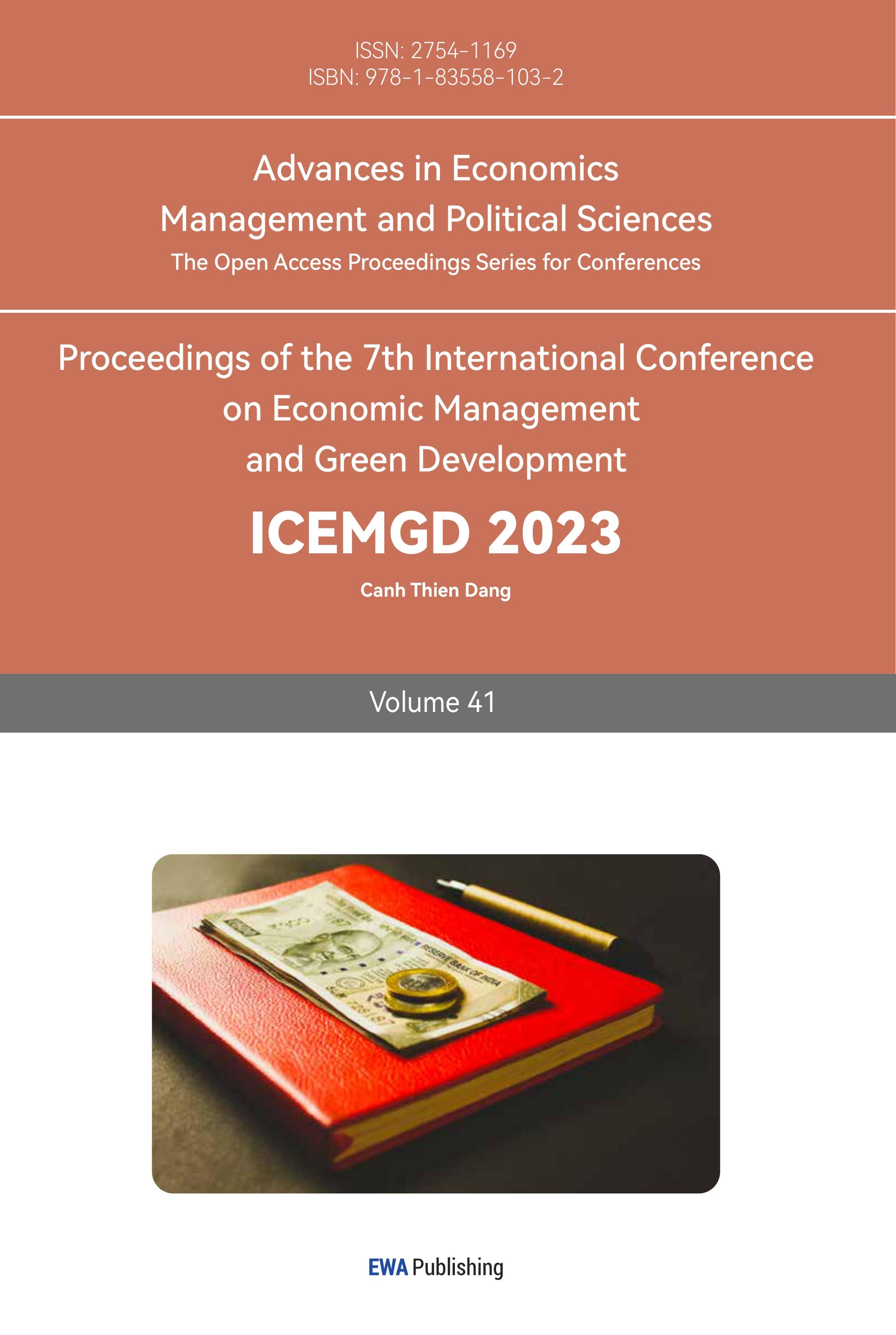References
[1]. Global Communication Report (no date) USC Annenberg School for Communication and Journalism. Available at: https://annenberg.usc.edu/research/center-public-relations/global-communication-report (Accessed: 15 June 2023).
[2]. Sweetser, Kaye D. "Digital political public relations." Political Public Relations. Routledge, 2019. 82-104.
[3]. Goldhaber, Michael H. "The attention economy and the net." First Monday (1997).
[4]. Lanham, Richard A. The economics of attention: Style and substance in the age of information. University of Chicago Press, 2006.
[5]. Evans, David C., and David C. Evans. "Attentional Focus." Bottlenecks: Aligning UX Design with User Psychology (2017): 21-33.
[6]. Evans, Nathaniel J., et al. "Disclosing Instagram influencer advertising: The effects of disclosure language on advertising recognition, attitudes, and behavioral intent." Journal of interactive advertising 17.2 (2017): 138-149.
[7]. Bachmann, Ruediger, Gabriel Ehrlich, and Dimitrije Ruzic. Firms and collective reputation: The Volkswagen emission scandal as a case study. No. 6805. CESifo Working Paper, 2017.
[8]. Mheidly, Nour, and Jawad Fares. "Leveraging media and health communication strategies to overcome the COVID-19 infodemic." Journal of public health policy 41.4 (2020): 410-420.
Cite this article
Jin,M. (2023). How the New Economy and the Economic Crisis are Affecting the Development of the Public Relations Industry. Advances in Economics, Management and Political Sciences,41,111-115.
Data availability
The datasets used and/or analyzed during the current study will be available from the authors upon reasonable request.
Disclaimer/Publisher's Note
The statements, opinions and data contained in all publications are solely those of the individual author(s) and contributor(s) and not of EWA Publishing and/or the editor(s). EWA Publishing and/or the editor(s) disclaim responsibility for any injury to people or property resulting from any ideas, methods, instructions or products referred to in the content.
About volume
Volume title: Proceedings of the 7th International Conference on Economic Management and Green Development
© 2024 by the author(s). Licensee EWA Publishing, Oxford, UK. This article is an open access article distributed under the terms and
conditions of the Creative Commons Attribution (CC BY) license. Authors who
publish this series agree to the following terms:
1. Authors retain copyright and grant the series right of first publication with the work simultaneously licensed under a Creative Commons
Attribution License that allows others to share the work with an acknowledgment of the work's authorship and initial publication in this
series.
2. Authors are able to enter into separate, additional contractual arrangements for the non-exclusive distribution of the series's published
version of the work (e.g., post it to an institutional repository or publish it in a book), with an acknowledgment of its initial
publication in this series.
3. Authors are permitted and encouraged to post their work online (e.g., in institutional repositories or on their website) prior to and
during the submission process, as it can lead to productive exchanges, as well as earlier and greater citation of published work (See
Open access policy for details).
References
[1]. Global Communication Report (no date) USC Annenberg School for Communication and Journalism. Available at: https://annenberg.usc.edu/research/center-public-relations/global-communication-report (Accessed: 15 June 2023).
[2]. Sweetser, Kaye D. "Digital political public relations." Political Public Relations. Routledge, 2019. 82-104.
[3]. Goldhaber, Michael H. "The attention economy and the net." First Monday (1997).
[4]. Lanham, Richard A. The economics of attention: Style and substance in the age of information. University of Chicago Press, 2006.
[5]. Evans, David C., and David C. Evans. "Attentional Focus." Bottlenecks: Aligning UX Design with User Psychology (2017): 21-33.
[6]. Evans, Nathaniel J., et al. "Disclosing Instagram influencer advertising: The effects of disclosure language on advertising recognition, attitudes, and behavioral intent." Journal of interactive advertising 17.2 (2017): 138-149.
[7]. Bachmann, Ruediger, Gabriel Ehrlich, and Dimitrije Ruzic. Firms and collective reputation: The Volkswagen emission scandal as a case study. No. 6805. CESifo Working Paper, 2017.
[8]. Mheidly, Nour, and Jawad Fares. "Leveraging media and health communication strategies to overcome the COVID-19 infodemic." Journal of public health policy 41.4 (2020): 410-420.









